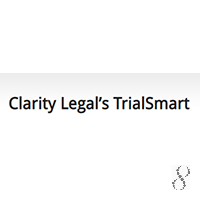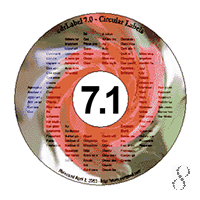Understanding CLT Issues
Typical CLT Opening Challenges
Clarity Legal Viewer Isn't There
Double-clicking your CLT file prompts the message "- Can't Open CLT File". If this is the case, it's usually due to the fact that you do not have Clarity Legal Viewer for - installed on your computer. Your operating system cannot associate your CLT with Clarity Legal Viewer, so double-clicking the file won't work.
Tip: When another CLT application is installed, you can choose to open it by selecting "Show Apps" and using that program.
Incorrect Clarity Legal Viewer Version
In other instances, your Clarity Legal Transcript File file version may not be supported by your version of Clarity Legal Viewer. You will need to download a newer version of Clarity Legal Viewer if you don't have the right version. Your Clarity Legal Transcript File file was probably created by a newer release of Clarity Legal Viewer than what's currently installed your computer.
Tip: Right-clicking on your CLT, then clicking "Properties" (Windows) or "Get Info" (Mac), can provide clues about your file version.
Summary: Not having the right Clarity Legal Viewer version on your computer can cause problems opening CLT files.
Additional CLT Opening Issues
You can still experience errors opening CLT files even with the latest version of Clarity Legal Viewer installed on your PC. There can be other issues - unrelated to software - preventing you from opening CLT files. Issues that aren't software-related:
- Corrupt Windows Registry file path references for CLT
- Deletion of the CLT file description from the Registry by mistake
- Clarity Legal Viewer or another CLT application experienced a flawed installation
- Your CLT can't be loaded properly (file corruption)
- Past or present virus infection has affected your CLT
- Device drivers for CLT-related hardware are out-of-date
- Insufficient system resources to successfully open Clarity Legal Transcript File files
Quiz: Which file extension is an archive file?

That's Correct!
A SIT file was created by Smith Micro Systems for use with the Macintosh operating system. Now, it is considered "cross-platform", working on multiple operating systems including Windows, Macintosh, Android, iOS, and others.
Close, but not quite...
A SIT file was created by Smith Micro Systems for use with the Macintosh operating system. Now, it is considered "cross-platform", working on multiple operating systems including Windows, Macintosh, Android, iOS, and others.

Poll: How often do you encounter a file extension that you don't recognize?
































